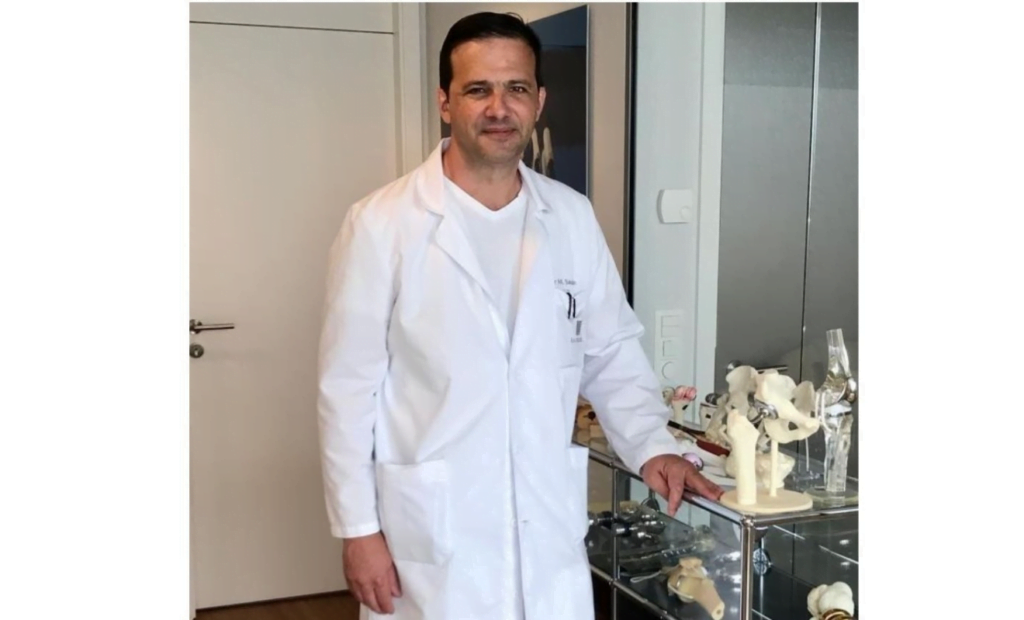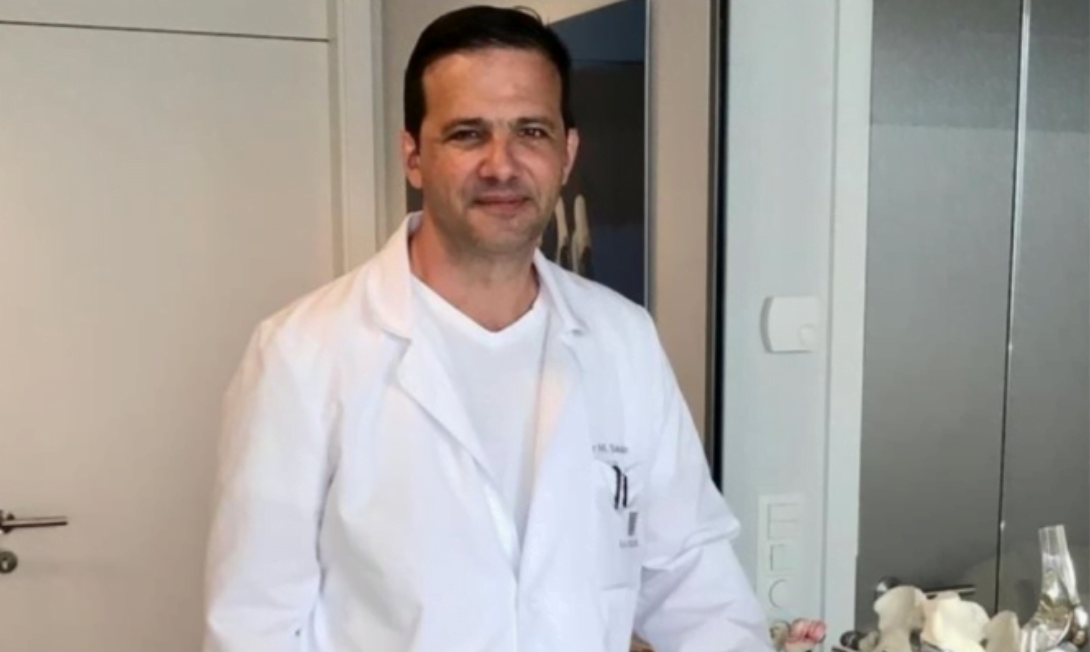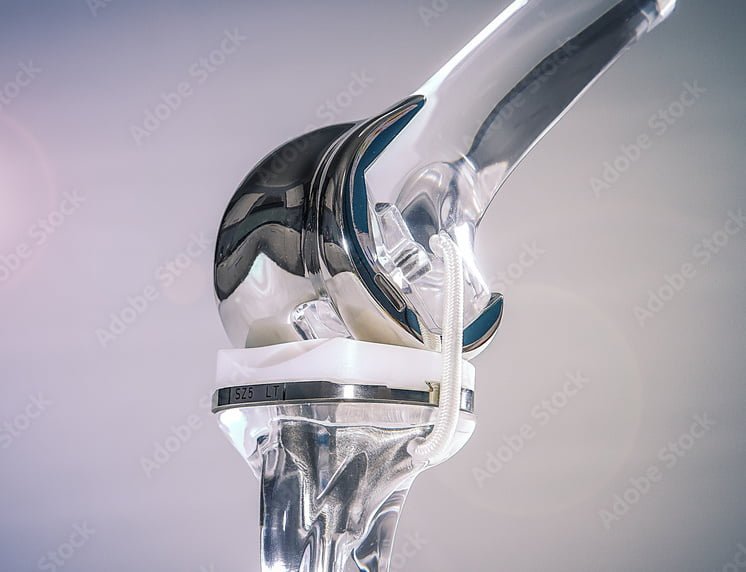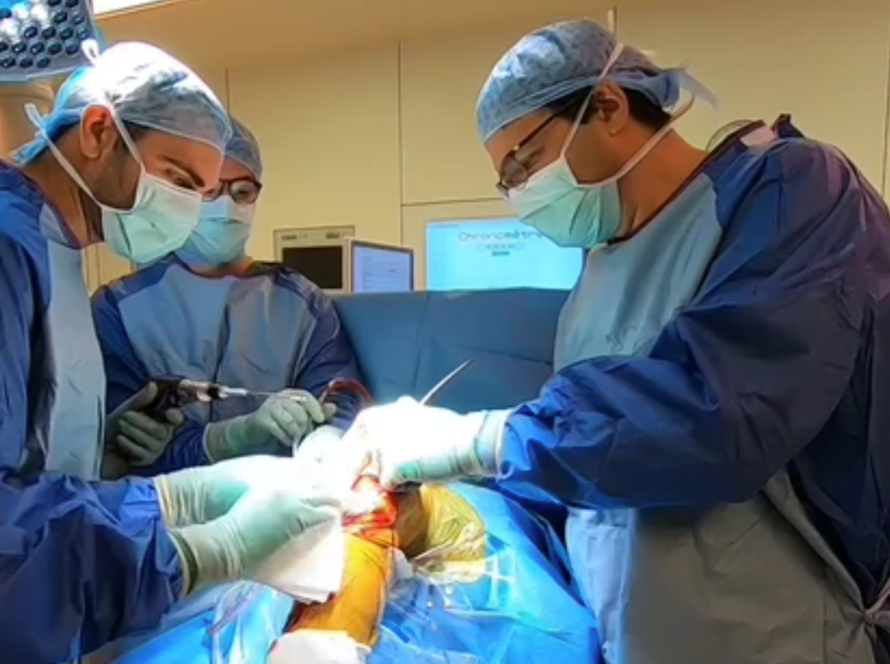
Dr. Marc Saudan is a specialist in orthopedic surgery and traumatology of the musculoskeletal system and works for the Hirslanden group of clinics. He answers questions from TCS MyMed.
Mr. Saudan, as an orthopedic surgeon, you can bring immediate improvement to your patients, but in recent weeks your hands have been literally tied. How do you feel about the situation today?
The first reaction was correct. After all, we had to be prepared for the possibility of a massive influx of patients such as that experienced by our neighbors in northern Italy. This meant that private clinics could participate in the health effort by interrupting their elective activity, so that public hospitals could delegate part of their activity to clinics. In Geneva, this collaboration worked very well with the cantonal hospital, especially with regard to our clinic, more precisely orthopedics, in the form of a collaboration with the doctors of the orthopedics department in order to allow the management of orthopedic emergencies in our hospital, independently of their insurance. However, after demonstrating our responsiveness to stopping any elective program, I think we could have resumed our program a little earlier, especially for elderly patients who were suffering a great deal of pain from osteoarthritis of the knee or hip. If there is another wave of epidemics, the health authorities will have to consult on this point.
What advice do you have for patients who are still afraid to go to the doctor or have an operation?
At present, I think that the various medical practices and centers are perfectly organized to maintain social distancing and that there is no risk in seeing a doctor or having a scheduled operation. Patients with chronic diseases in particular need regular follow-up. In our medical practice, we have spaced appointments half an hour apart so that patients do not bump into each other, and we have arranged the chairs in the waiting room so that patients do not have to sit next to each other.
Can untreated orthopedic diseases become dangerous for the patient?
Les maladies orthopédiques ne représentent pas un danger immédiat pour le patient et nous pouvons reporter les opérations. Orthopedic diseases are not an immediate danger to the patient and we can postpone operations. However, if the patient is elderly and can no longer walk due to pain, inactivity is ultimately very detrimental to his or her health.
How has your work changed in the last eight weeks?
My outpatient activities are focused on osteoarthritis of the hip and knee, which mainly concerns elderly patients. During the last eight weeks, the consultation has obviously been reduced by more than 90%, but we have remained open for half a day to answer the phone. As far as the surgical program is concerned, all elective operations have been banned, resulting in an 80% reduction in surgical activity.
What challenges can we expect in the near future?
I think the biggest challenge in the near future will be to restore people’s confidence to go to the doctor and socialize. It must be said that the excessive media coverage of this crisis has led to a state of anxiety among the elderly that must be put into perspective. Indeed, we have recorded less than 2000 deaths so far, while smoking is responsible for more than 9000 deaths per year in Switzerland. At the end of this crisis, it will be interesting to take stock of the different strategies adopted by some countries like Switzerland to know what attitude to adopt in case of a new wave of epidemic.
Coming back to orthopedics, what sport should be banned to protect the joints?
All sports have an impact on the joints. This is the case for example with running or CrossFit which is very popular at the moment, but is harmful to the joints.
What sport would you recommend?
I often recommend to my patients that they do sports that are more of a “gliding” type, such as cycling, swimming, spinning and of course walking. It is simply better to take the stairs than the elevator, for example. This habit is already very beneficial for your health.
What are you doing to keep your bones healthy?
I do at least every other day 40 minutes of cross training which is a beneficial exercise for the heart and the different joints that move freely and increases the lubrication of the joints
This information is intended as a general guide and should not be relied upon as the sole basis for decisions related to your medical condition. Consult your doctor or pharmacist if you have any medical questions. A search on the Internet does not replace a consultation with a professional.




